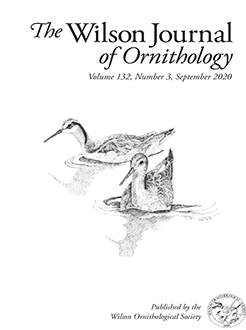Increased participation in mixed-species flocks is one hypothesized behavioral tactic used by forest birds to adjust to cold temperatures in winter. This phenomenon has been documented in temperate North America, but not at subtropical latitudes where temperatures are less extreme. To understand how temperature structures the size, richness, flocking propensity, and species interactions of subtropical mixed-species flocks, we performed paired mixed-species flock and point count surveys in upland hardwood forests in north-central Florida, USA. We described the composition of 92 mixed-species flocks across a ∼20 °C range of daytime temperatures, using linear mixed models and network analyses to test for effects of temperature. We found that both flock species richness and size were significantly smaller at higher temperatures while statistically controlling for effects of time of day, canopy height, and local site effects. Thirteen of 14 flocking species showed decreases in within-flock abundance with increasing temperature, although this effect was only significant for the nuclear Carolina Chickadee (Poecile carolinensis). Flock composition and species flocking propensities were less plastic than in temperate systems. By comparing metrics from 7 social networks corresponding to temperature ranges, we found that strength of flocking interactions was lower and that species were significantly less likely to co-occur with similarly foraging species at temperatures above 20 °C. Flocking propensities were lower for many species in the warmest temperature range. Thirteen of 14 species joined flocks in all 7 networks, and dissimilarity of social networks was consequently best explained by changes in species co-occurrence patterns rather than species turnover within flocks. In contrast to boreal flocking systems, changes to flocking behavior were prompted by unseasonably warm weather rather than cold spells, which suggests that warming winter temperatures could lead to breakdown of social behaviors in our system.
How to translate text using browser tools
28 April 2021
Effect of temperature on flocking propensity and species interactions in a subtropical mixed-species flocking system
Harrison H. Jones,
Mitchell J. Walters,
Scott K. Robinson
ACCESS THE FULL ARTICLE
behavioral plasticity
interspecific competition
mixed-species flock
network analysis
nonbreeding ecology
temperature





